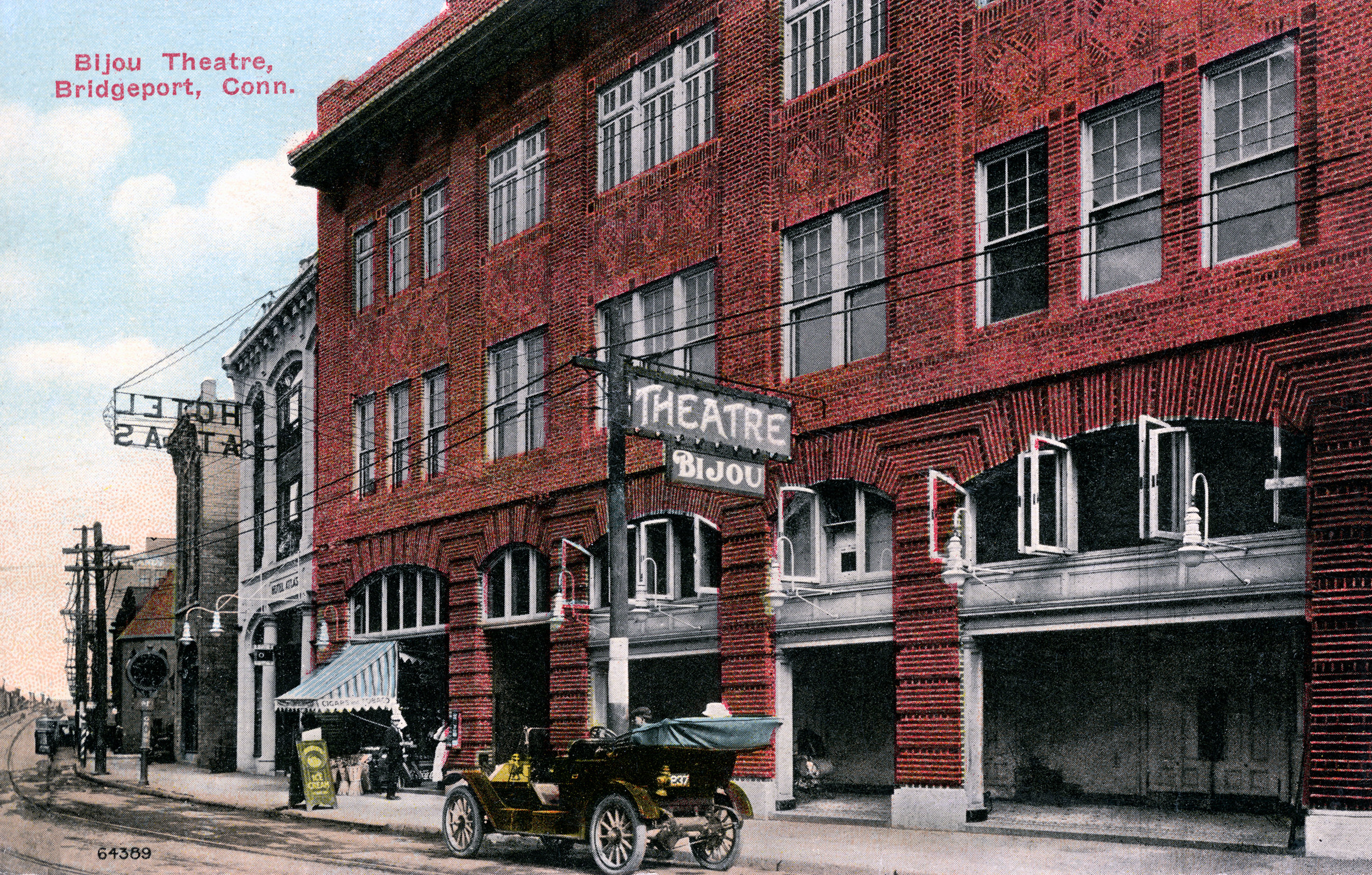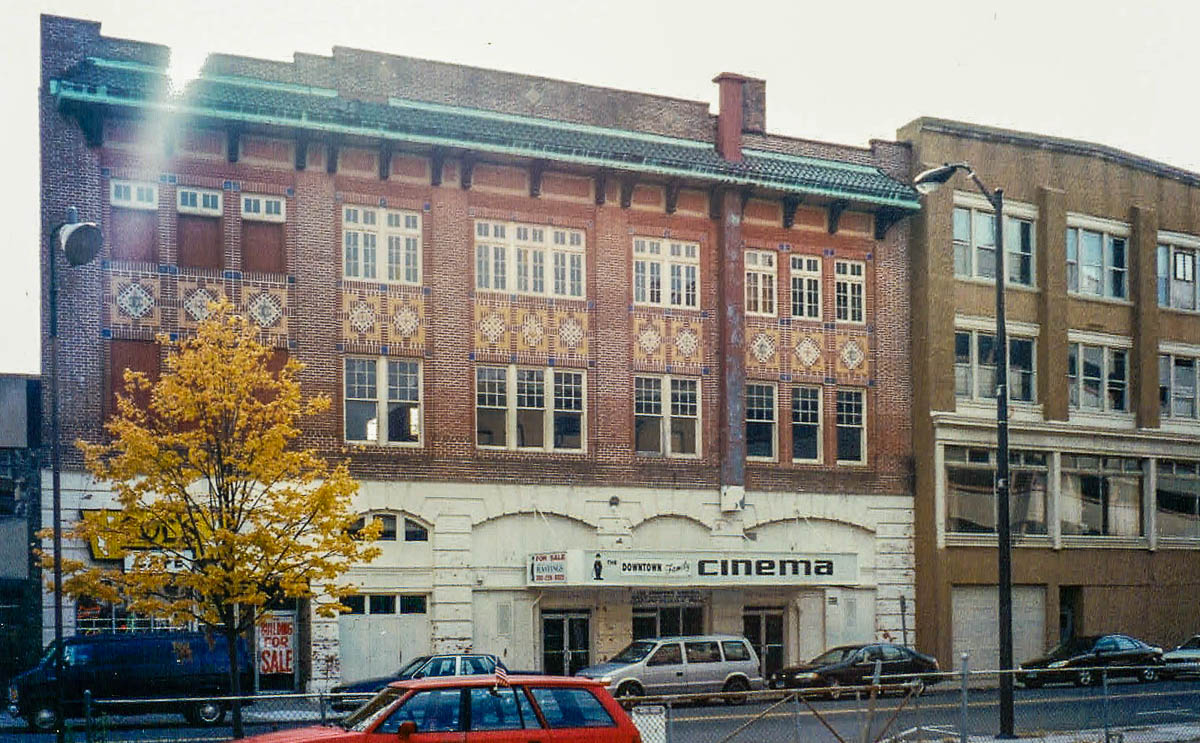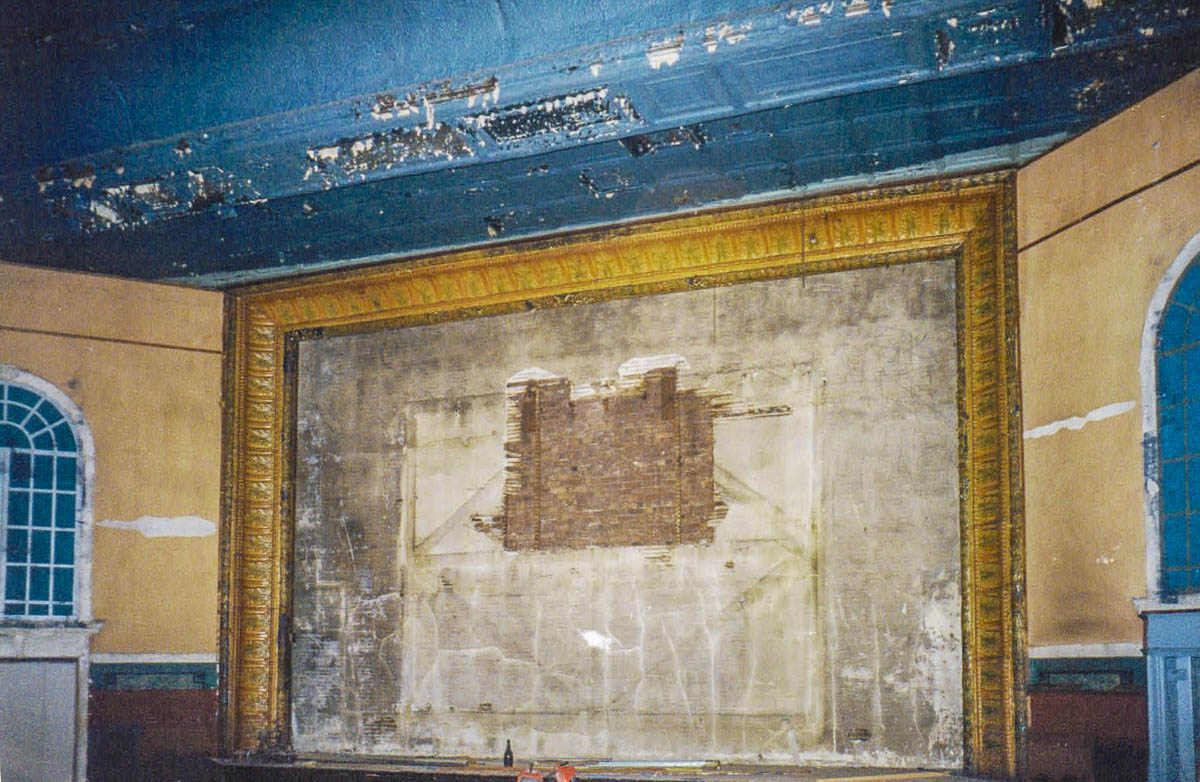The Bijou Theatre is the oldest building in America that opened as a movie and live performance space and is still operating as a movie theater and live entertainment venue.
The story began in 1909 when Lillian L. Ashmun purchased the property, located at 269-275 Fairfield Avenue in Bridgeport. She commissioned architect Ernest G. Southey to design a three-story commercial building to include an opera house and retail store. However, during construction, the plans for an opera house were converted into a movie house in response to the growing popularity of silent films at the time. The modified plan included a two-story ballroom above.
In 1910 Peter Dawe leased, operated and eventually bought the Bijou Theatre. Daniel J. Quilty, a master dance instructor, conducted his College of Dancing within the two-story ballroom area. He taught waltz, polka, tap and ballet until his death in 1950.
In 1911 advertisements appeared in The Bridgeport Post newspaper for the Bijou Theatre, which was building a reputation for “High Class Vaudeville and Pictures, Three Shows Daily, Saturday and Holidays Four Shows. 600 seats for Ladies and Children, Matinees 5 cents, Nights Everybody 10 cents.”
In 1929 Athan G. Prakas, a Greek immigrant, began operating a luncheonette and confectionary in the retail portion of the building. He developed a spark for Helen, the piano player for silent films at the Bijou Theatre. He wooed her, they married, and eventually they purchased the building. The family of Athan and Helen, including their daughters Olympia and Marina, Olympia’s husband George Crist and their son Athan, owned and operated the theatre through a number of name changes – The Rivoli, Downtown Cinema and Downtown Family Cinema.






